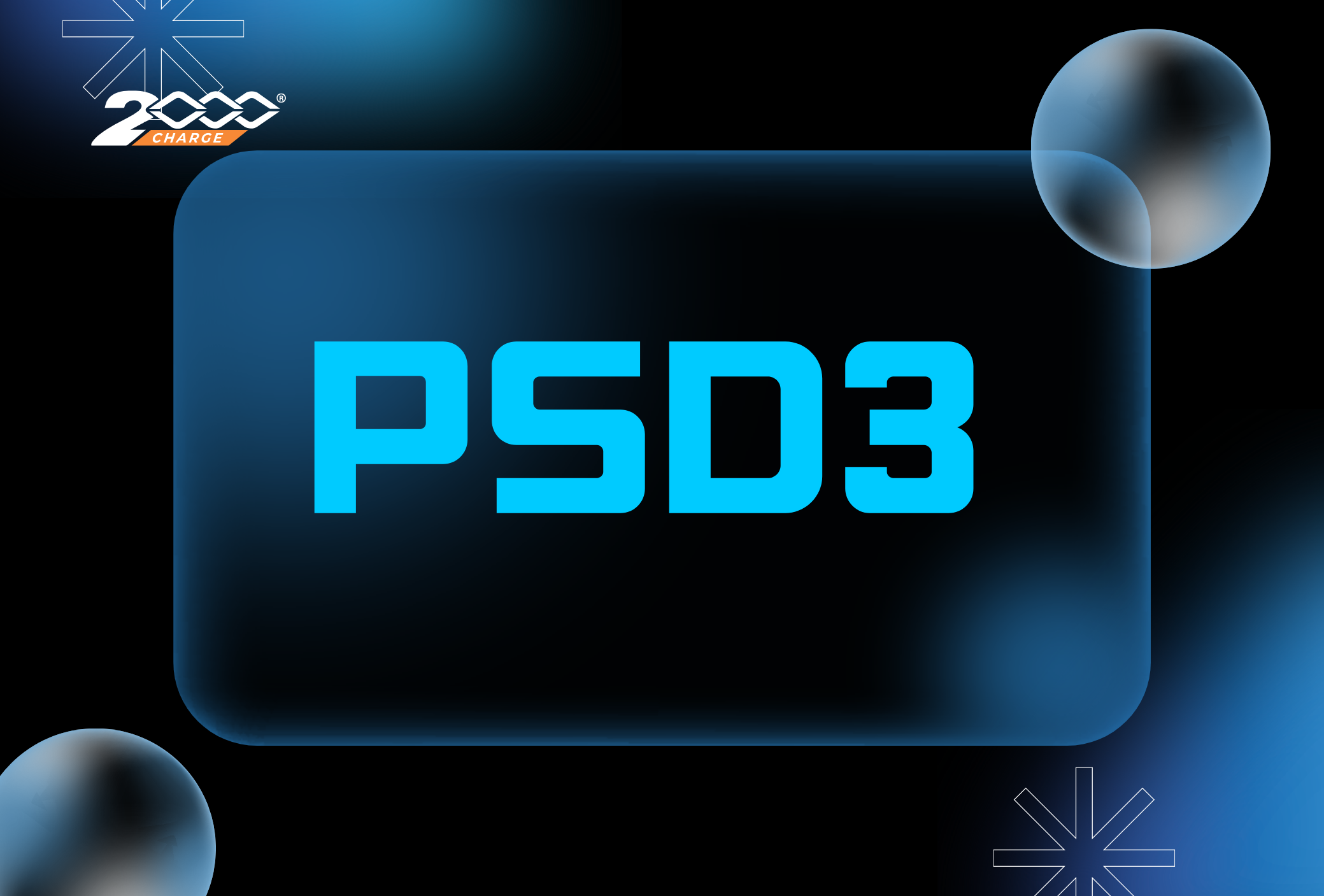DPMax Open Banking






Pay By Bank
Open banking is a cutting-edge and highly secure financial process that empowers consumers and merchants by allowing regulated third-party service providers access to banking, transaction data, and other vital financial information. Through secure APIs Application Programming Interfaces, banks facilitate this data sharing, ushering in a new era of financial innovation. Backed by the European Commission's Open Banking Infrastructure., it will empower consumers to share their data securely so that they can get a wider range of better and more secure financial products.
The payment services market has changed significantly in recent years and 2000Charge is bringing these advantages to US-based merchants. Electronic payments in the EU have been constantly growing, reaching €240 trillion in value in 2021.






Instant Bank Transfer
DPMax facilitates instant bank transfers, where consumers simply select "Pay by Bank" and initiate payments. Funds are directly transferred from their account, and the merchant receives immediate payment confirmation.
Austria, Belgium, Bulgaria, Croatia, Cyprus, Czech Republic, Denmark, Estonia, Finland, France, Germany, Greece, Hungary, Iceland, Ireland, Italy, Latvia, Lithuania, Luxembourg, Malta, Netherlands, Norway, Poland, Portugal, Romania, Slovakia, Slovenia, Spain, Sweden.
Merchant
At checkout, the consumer selects DPMax (Pay by Bank) as their payment method.
Payment method
The consumer selects their bank or enters their IBAN.
Online bank
The consumer logs in to their online banking and confirms the transaction.
Merchant
Payment confirmed.

DPMax is our flagship product that enables businesses to leverage the power of Open Banking for seamless, secure, and cost-effective payments. It allows merchants to accept payments directly from customers’ bank accounts.
Originally, DPMax was named "DirectPayMax" when the concept of Open Banking was less familiar and the payment landscape was dominated by more traditional methods. The name "DirectPayMax" reflected the direct payment nature of the product. However, as Open Banking became more widely recognized and adopted, we decided to simplify the name to DPMax. This new name aligns better with the modern, cutting-edge payment solutions that Open Banking offers and is easier for both businesses and consumers to understand and remember.
With DPMax, we empower merchants to offer an efficient payment method that supports multiple banks and provides an enhanced customer experience while also reducing payment processing costs. The product is designed to support the growing demand for Open Banking payments and to help businesses stay ahead in the fast-evolving payments ecosystem.

The term “Open Banking” describes an extremely secure and high-technology procedure. Banks are sharing various data with regulated third-party service providers. Through Open Banking, banks provide access to consumer banking, transaction data, and other financial information. This data is then shared via secure APIs. Open Banking aims to improve financial services for consumers and merchants. Providing this data that banks have historically kept in-house creates endless new opportunities in the world of payments.
Open Banking enables payment businesses, whether new or well-established, to enter the market and offer new and innovative products that benefit both consumers and merchants. It’s important to note that all mentioned data is only shared with the customer's permission. Open Banking is regulated by the PSD2 or the Revised Payment Services Directive – a regulatory EU legislation that defines the application of Open Banking.

Integration is simple via API, Hosted Payment Page, Payment Widget.

- Instant Bank Transfer
Funds are instantly pushed from the consumer's bank account to the merchant’s account.
- No Chargebacks
Payments made with DPMax cannot be reversed as they are consumer initiated.
- The most popular European payment method.
DPMax transactions are swift, reliable, and efficient.
- 100% Coverage
Integrated secondary underlying systems.
- Access new markets with one solution
Leads to Increased sales, improved conversion rate.

Austria, Belgium, Bulgaria, Croatia, Cyprus, Czech Republic, Denmark, Estonia, Finland, France, Germany, Greece, Hungary, Iceland, Ireland, Italy, Latvia, Lithuania, Luxembourg, Malta, Netherlands, Norway, Poland, Portugal, Romania, Slovakia, Slovenia, Spain, Sweden.

We can offer 100% coverage because our system has secondary underlying systems built into its core. If a bank is not part of the Open Banking network yet, our system automatically switches to a payment method that supports all EU banks, ensuring seamless transactions and full coverage.

DPMax is currently available in select European countries, while continuously expanding our coverage to more regions!

Open Banking works by allowing consumers to securely share their banking data with third-party providers through APIs (Application Programming Interfaces), with their consent. First, the consumer gives permission for a provider, like a payment service, to access their bank data. The bank then shares the customer's financial information, such as account balances securely via an API.
When making a payment, the customer is redirected to their bank’s online platform, where they log in and authorize the transaction. The payment is processed directly between the customer’s bank and the merchant. The entire process is completed in real-time, with both the customer and the merchant receiving instant confirmation of the transaction.
This system offers faster, more secure, and transparent payments, giving consumers greater control over their financial data and provides merchants with a cost-effective, seamless, real-time solution.

No, Open Banking does not currently support recurring payments in the same way that other payment methods like credit cards or SEPA does. While Open Banking allows for single, one-off payments to be initiated, it does not automatically handle the scheduling or management of recurring payments. This is because Open Banking requires consumer consent for each transaction, and there’s no built-in mechanism for authorizing future payments without additional action from the customer at the moment.

We recommend using "Pay by Bank", as it is a well-recognized and widely accepted term for Open Banking payments.

The introduction of the Payment Services Directive (PSD) in 2007 contributed to the development of a single payment market in the European Union, aiming to promote innovation, competition, and efficiency within the EU.
In 2013, the European Commission proposed an amendment to enhance these objectives. This amendment strengthens security in the payments market, improves consumer protection, and fosters increased competition and innovation in the sector. With these enhancements, PSD2 is expected to facilitate the development of new payment methods and e-commerce. The payments industry is evolving and innovating thanks to PSD2.
Blog
.png)
Why are local payment methods important?
Why are local payment methods important?
Ready to increase your revenue with local payment methods?
There are a lot more payment methods customers from all over the world feel more comfortable to use and trust much more than credit cards.





.jpg)
.png)














